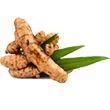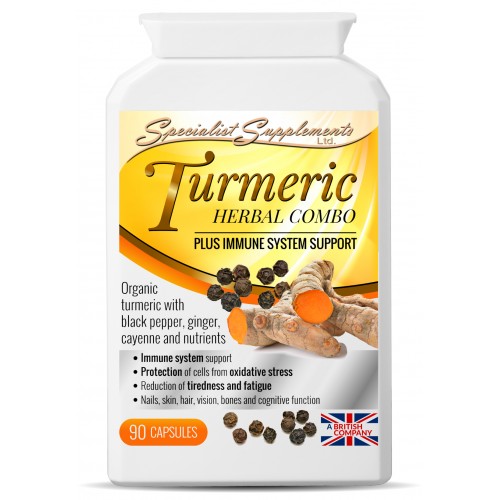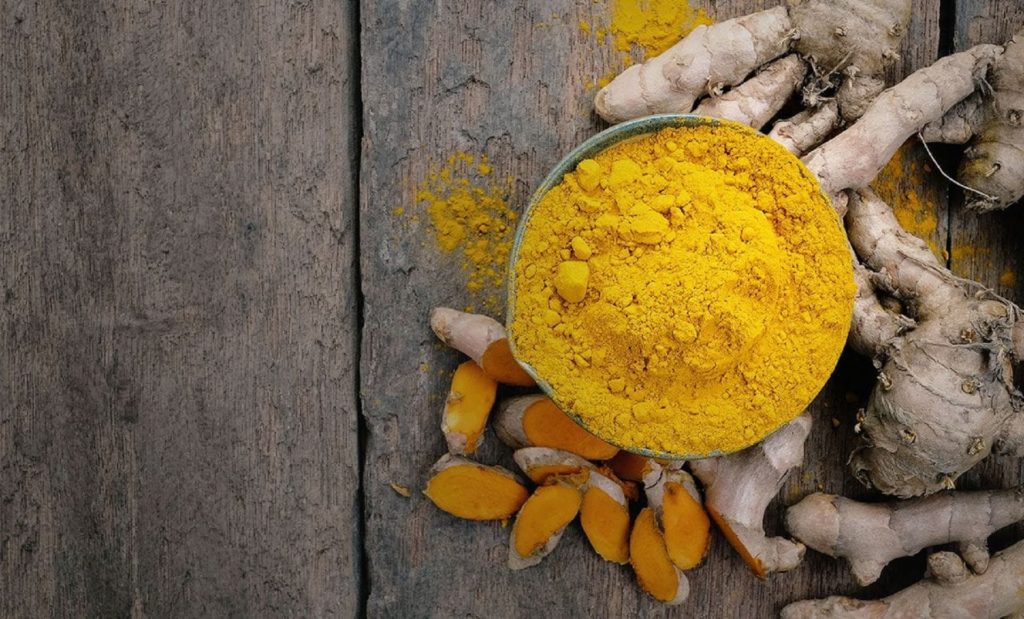Turmeric Health Supplement
What Is Turmeric

What is Turmeric
Used internationally as a staple spice in cuisine, an element of holistic medicine, an offering in religious ceremonies, and even a coloring in cosmetics, turmeric has been providing the world with countless uses and immense health benefits. for thousands of years. The scientific name for the plant is Curcuma longa, a well-known perennial belonging to the ginger family.
Turmeric’s beautiful bright yellow root has led to its nicknames “the golden spice” and “Indian saffron.” It has graced countless cultures around the world with its gorgeous coloring, unique aroma, and unmistakable flavor. Available in a natural state of the whole turmeric root or in powdered, pressed, extract or supplement forms, turmeric can provide countless preventative and healing measures.

Beneficial for:
- • Bones, joints and circulation
- • Immunity and digestive health
- • Antioxidant levels • Inflammation, joint pain and arthritis
- • Acid-base metabolism HERBAL COMBOTurmeric (curcumin) PLUS synergistic herbs and nutrients
- • Tiredness and fatigue
- • Nails, skin and hair
- • Cognitive function
- • Hormonal balance and the liver
- • Macronutrient metabolism and more..
Turmeric’s Unique Chemical Profile
Turmeric contains more than 100 astounding chemical compounds that contribute to its ability to help treat conditions from stomachaches to respiratory illness. These chemical compounds are what make turmeric unique. Most importantly, turmeric contains curcumin, which is a polyphenol. Polyphenols are organic chemicals that have been shown to have anti-inflammatory properties. Polyphenols are also present in other foods and beverages, such as epigallocatechin in green tee, capsaicin in chili peppers, and resveratrol in red wine and fresh peanuts. Curcumin is what gives turmeric root its beautiful yellow-orange color. Curcuminoids, the group of chemical compounds responsible for the health benefits of turmeric, include curcumin, demethoxycurcumin, and bisdemethoxycurcumin. Turmeric also contains volatile oils, including tumerone, artumerone, and zingiberene.
The Special Benefits of Turmeric
The turmeric root possesses natural oils, amino acids, vitamins, minerals, fatty acids, and phytochemicals that combine to provide healing properties for almost every area of the body. Phytochemicals are naturally occurring plant compounds that boost the healthy functioning of cells, tissues, organs, and systems. These compounds include antioxidants, anti-inflammatory agents, analgesics, and a wide variety of protective, preventative, and health-promoting derivatives that help support the natural functions of the body.
The powerful phenols contained within the flesh of the turmeric root are varieties of curcuminoids: curcumin, desmethoxycurcumin, and bisdesmethoxycurcumin, which not only help combat germs, bacteria, and viruses but also help aid in digestive processes, support immunity, improve energy, maximize metabolic functioning, cleanse the blood, regulate blood sugar, and increase mental processes.
When to Be Careful with Turmeric: Side Effects
Turmeric is generally a very safe ingredient and supplement. However, talk with your doctor before beginning any routine that includes it. Here are some specific situations that require extra attention before using turmeric:
+ Eating turmeric in foods is safe during pregnancy, but turmeric supplements may not be.
+ Those with gallbladder problems might find that turmeric exacerbates them.
+ Turmeric might slow blood clotting, so those with bleeding problems or an upcoming surgery should be cautious.
+ Curcumin might decrease blood sugar in diabetics.
+ High amounts of turmeric might affect iron absorption.
+ Turmeric might decrease testosterone levels and sperm movement, which could affect fertility.
+ High levels of turmeric might increase the production of stomach acid, which could be problematic for those with reflux or ulcers.

